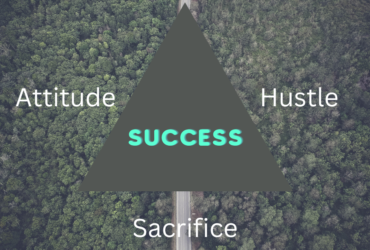
Tips + DIY
How to Find Meaning When Your Job Feels Meaningless
Most of us want work that’s meaningful: We want to feel that our jobs make a difference to other people and that we are contributing to the greater good. But at a time when the world feels like it’s on fire, finding meaning day to day can be a challenge. You may wonder, what’s the point? How can you break free of this negativity — and what can you do to change your perspective on work? How can you use your skills, experience, and values to reignite your passion and drive? Who can help you find your purpose? And what can you do to use the present moment’s overlapping crises as an opening to create meaning?
We thought you might enjoy this article by Rebecca Knight with the Harvard Business Review…
How to Find Meaning When Your Job Feels Meaningless by Rebecca Knight
What the Experts Say
Amidst a rapidly spreading and deadly virus, a global economic crisis, and civil and political unrest that’s ripping at the fabric of society, it’s hard to feel inspired about much of anything these days — let alone your job.
But while it’s understandable to feel that your work has lost its purpose, rekindling it ought to be a top priority. Having a professional purpose and an identity “gives your life meaning and motivation,” says Hatice Necla Keleş, a professor in the Department of Organizational Management, at Bahçeşehir University in Istanbul. “Nothing gives you more energy than a clear purpose.” Without one, “even just getting out of bed every morning becomes a challenge.”
Luckily, reengaging with your job and reminding yourself of “who you are and why you do what you do,” doesn’t necessarily require a grand gesture or journey, says Karen Dillon, coauthor of the bestseller How Will You Measure Your Life? with Clayton Christensen and James Allworth. “There are many different ways you can find purpose,” she says. Here are some ideas.
Offset negativity
First things first: You need to address the root reasons for your feelings of meaningless. It’s likely one of the culprits is stress. In a typical day, you endure hundreds of what Dillon refers to as “micro-stresses” — minor aggravations, such as a colleague hastily disagreeing with you in a meeting, or a peer falling behind on a deadline — that affect your productivity and feelings about your job. “You are usually able to absorb these little cuts, but they are exponentially amplified [and more painful] in a pandemic,” when your usual outlets for stress — seeing friends or doing a tough gym workout — are absent. “It explains why we feel so stressed” and that our work has no meaning.
There is, however, a simple antidote. “Just as micro-stresses eat away at you, micro-moments of pleasure can help you find your way back,” Dillon says. Look for ways to feel good and uplifted: Read about real-life heroes; take a nature walk; attend a religious service via Zoom; page through an art book; or scroll through photographs of faraway places.
Keleş recommends also taking a break from the news. The constant “negativity affects your brain and wellbeing” by “exhausting your strength and stealing your joy.”
Cultivate humility
Recognize, too, that Covid-19, ensuing economic problems, and political instability “have taken an enormous toll,” and it’s hard to find meaning in your work when you’re “feeling fried,” says Dillon. Give yourself a break. And yet, while this past year has been hard, you need to remember that you’re not the only one suffering. “People are going through hard things all over the world,” she says. “Have compassion.”
To shift your perspective, Dillon advises “seeking reminders that you’re not alone and that you’re connected to bigger things.” A little self-pity every now and then is natural, but don’t allow yourself to devolve into a woe-is-me mindset. “How you view your life shapes your life,” says Keleş. It may sound corny, but practicing gratitude provides entrée to positive emotions that can neutralize the challenges you inevitably experience. (More on this later.) Keleş recommends heeding the words of Viktor Frankl, the famous Austrian psychiatrist and Holocaust survivor. He believed that individuals “can find meaning in life even when they face [what feels like a] hopeless situation.”
Reflect on your values
Keleş also recommends reflecting on what you care about and what motivates you. “Finding meaning in your work [requires thinking] about how you’re living your life — how you’re spending your time and how you’re using your abilities,” she says.
Ask yourself: What drives me? What are my values? What am I good at doing? And what contributions do I wish to make? Dillon suggests “actively reminding yourself why and how the work you do affects others.” Remember, you don’t need to be curing diseases or saving endangered species for your work to be meaningful. “Think about what excited you about working at your organization in the first place,” she says. Think about projects and plans that invigorate you; consider what you’re excited to learn in your job; reflect on the interesting problems your organization is tackling.
If you’re coming up short, Dillon recommends talking to your colleagues and members of your team. Ask them: “How is what we do helping people and making the world better? Why does our work matter right now?” Piggybacking on their energy and insights could help you regain inspiration.
Offer your assistance
“In a perfect world, you want to align your purpose with the mission of your organization, and you want to feel like the work you’re doing is for the greater good,” says Dillon. “But if that’s gone — even just temporarily — look for small ways that your purpose can be personal.”
Being helpful is one of the most gratifying, Dillons says. You might, for instance, provide coaching or mentorship to a younger employee, volunteer to pick up slack for a member of your team who’s struggling, or offer support to a colleague in a different division. You could also look for opportunities outside your day job at local political or community service-based organizations.
Putting yourself forward, “even in small ways can be replenishing.” Keleş concurs. “Helping others provides meaning and satisfaction,” she says. “This feeling of interconnectedness is exactly what people need right now.”
Craft your current job with an eye toward purpose
Job shaping is another strategy that can help spark your dormant enthusiasm for work. Look for ways to “make new contributions [in your job] so that your presence at your organization feels more meaningful,” says Keleş. Think about how your strengths, skills, and passions could help your organization deal with the current moment’s crisis-related challenges.
For instance, if you’re feeling the urge to take action on the pandemic and you’ve got logistical chops, you might help take charge of your company’s Covid-response planning. If you’re moved to work on issues related to politics or social justice and you have a background in HR, you could team up with like-minded colleagues to help your firm devise fairer hiring policies and promotion practices. Your goal is to make changes to your role that match your experience and motivations.
Seek out (and be grateful for) colleagues
“Even if you’ve lost your enthusiasm for the mission of your organization, hopefully it doesn’t mean you’ve lost your excitement for your team and your peers,” says Dillon. She suggests making a concerted effort to connect with colleagues that you enjoy. “Don’t let your job become a get-it-done transaction.” She also recommends reflecting on “why you’re grateful for certain colleagues” and then demonstrating your appreciation.
Research shows that expressing gratitude grounds you and provides a counterbalance to the negativity that crisis and uncertainty generate. Put simply, telling others what they mean to you is a meaningful experience in its own right. “Those moments of connection — taking a minute and saying, ‘I appreciate you and I really enjoy working with you’ — are powerful,” she says.
Consider a career change, but don’t be reckless
Finally, whatever you do, “don’t make a rash decision” based on your state of mind today, says Dillon. “We are all under a lot of stress, and no one makes good decisions under those conditions,” she says. If you’re contemplating quitting, hold off. It’s not exactly a stellar job market. “It’s important to be positive in the choices you make.” Once these crises pass, you may still desire a career change; and you can take steps to deal with it. Until then, “ride it out and see if you can” improve your current circumstances.
Principles to Remember
Do
- Reflect on how your strengths could help your organization deal with the current moment’s challenges, and look for ways to shape your job to make your work more meaningful.
- Offer help and assistance. Helping others provides purpose in itself. You might, for instance, coach a younger employee or help a member of your team who’s struggling.
- Look for ways to feel uplifted and take a break from the news from time to time.
Don’t
- Go it alone. Talk to your colleagues about how and why the work you do affects others; their energy and insights could spark inspiration.
- Neglect to say thank you. Showing your appreciation for colleague’s balances out the negative mindset that uncertainty generates.
- Make any hasty decisions about quitting. At a time of great uncertainty and instability, it’s important to be positive in the choices you make.
Click here to read more











